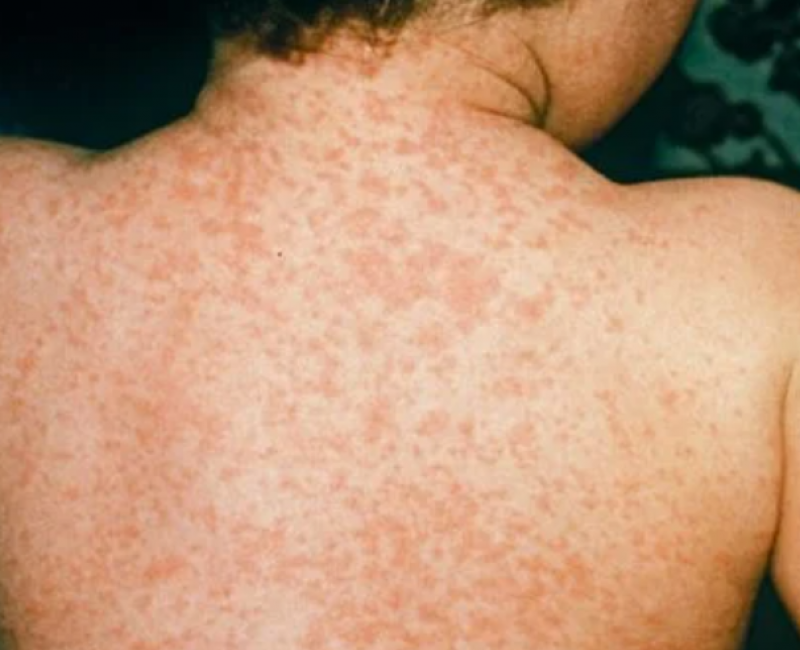Measles is one of the world’s most contagiousness viruses, and yes, it can be deadly.
Before the measles vaccine was introduced in 1963, worldwide epidemics occurred every few years. These epidemics resulted in about 2.6 millionTrusted Source deaths annually.
The widespread use of vaccinations has significantly decreased this number. In 2018, it was estimated that only 142,000 Trusted Source deaths from measles occurred worldwide.
Unvaccinated young children are at the highest risk of measles complications, including deaths, according to the World Health Organization (WHO)Trusted Source. Unvaccinated pregnant women and those with compromised immune systems are also more vulnerable regarding risk of complications and possible death.
Today, the measles virus is making a resurgence in multiple countries. The uptick in measles cases may be due to the circulation of misinformation about the measles and related vaccines, which has led to an anti-vaccination movement.
In this article, we’ll discuss how severe infection with the measles virus can be. We’ll also explore some of the myths surrounding the measles vaccine, to help you separate fact from fiction.
The severity of measles
Measles is a virus, and its initial symptoms can resemble a flu. People infected with measles may experience a high fever, cough, and runny nose.
Within a few days, you may see the telltale measles rash that consists of small, red bumps that are widespread, starting from the hairline on the face and eventually working its way towards the feet.
Complications from measles
A measles infection can lead to a variety of complications, some of which are immediate or severe, while others may be lifelong. These include:
Acute complications: These include diarrhea and ear infections. Hospitalization is also common.
Severe complication: These include premature births in infected pregnant people, encephalitis, pneumonia, and hearing loss.
Long-term complications: These can lead to intellectual or developmental disabilities in babies and young children.
Neurological complications such as rare subacute sclerosing panencephalitis (SSPE) are also possible measles-related developments.
It’s estimated that up to 3 in every 1,000 childrenTrusted Source with measles will die from respiratory and neurologic complications.
How important is the vaccination?
The problem with measles is that, not only is it highly contagious, but you may be an unknowing carrier of the virus for several days. In fact, you may contract the virus but not have any symptoms until 10 to 12 daysTrusted Source after initial contact has occurred.
Like other viruses, measles can be spread from contact, but it’s also extremely airborne, lasting for a couple hours in the air
This is why the measles vaccine is so important in bringing down the numbers of infections, as well as subsequent complications and deaths.
Immunizations come in the form of the measles, mumps, and rubella (MMR) vaccine, as well as the MMRV vaccine in children at 12 months up through the age of 12 years, which offers additional protection against varicella (chickenpox).
Overall, statistics have shown that the measles vaccine has directly impacted the rate of measles infections and subsequent deaths. In fact, there was a 73 percent decreaseTrusted Source in measles deaths worldwide, noted between 2000 and 2018.
Outbreaks of the infection are more prominent in developing countries where the vaccine isn’t as widely available, as well as areas where people actively refuse the vaccine.
Is the vaccine safe?
The measles vaccine is considered safeTrusted Source. Two recommended doses are 97 percent effective; one does is 93 percent effective.
However, as with any other vaccine, there’s a very small risk of causing an allergic reaction in some people. It’s estimated that less than 1 in every 1 million doses of measles vaccine given may cause a severe allergic reaction to the MMR vaccine.
Ask your doctor about your individual risk, particularly if you have a history of allergic reactions to shots.
Who should not get the vaccine?
While widely recommended for children and healthy adults, there’s also certain people who should not get the measles vaccine. These include:
- children under 12 months of age (the exception is children at 6 months of age who live in a measles-prone, outbreak area)
- women who are or likely may be pregnant
- people with serious active illnesses or infections, such as tuberculosis
- those who have undergone a recent blood product transfusion
- people with immune system deficiency issues related to cancer treatments, HIV/AIDS, and other medical considerations
- people with a severe gelatin allergy (may increase your risk of allergic reaction)
Myths about measles
Due to concerns about vaccines and other health issues, myths about measles are spreading around the internet, posing risks for the spread of the actual virus in real life.



































































































This Post Has One Comment
Pingback: Why are onions good for you? - ngrDesk News – Breaking News, Nigerian News, Entertainment, Fashion and Styles, Sport, Business and Politics